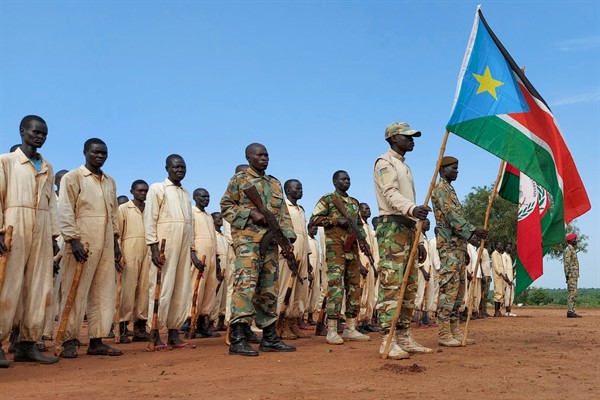It’s been two years since South Sudan’s leaders signed an agreement to end a crippling five-year civil war that killed almost 400,000 people and displaced millions, yet peace remains elusive. The country is reeling from escalating communal violence and a deepening humanitarian crisis, made worse by an ongoing political stalemate.
In February, President Salva Kiir swore in opposition leader Riek Machar to once again serve as his deputy in a unity government, providing a glimmer of hope that the war-torn nation might turn a corner. It was the latest attempt for the two leaders to share power, after the last one collapsed in 2016, when violence erupted in the capital, Juba, forcing Machar to flee the country on foot. While major fighting between their rival forces has halted for now, violence between various armed groups and makeshift community militias has spiked in many parts of the country, as experts warn that the main drivers of conflict are not being addressed.
“This peace deal presses pause on the main power struggle, but doesn’t create any clear path to resolving it,” Alan Boswell, the International Crisis Group’s senior analyst for South Sudan, told World Politics Review. “Discontent is extremely high, and there is no sign that the leaders have a plan or vision for uniting the country or moving it forward.” He added that as long as power is monopolized at the top, conflict will continue between the country’s diverse ethnic groups.

